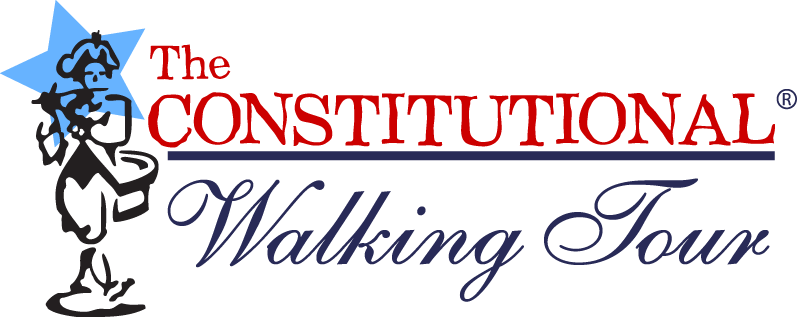Related Posts
- Buy Tickets for The Constitutional Walking Tour of Philadelphia – See 20+ Sites on a Primary Overview of Independence Park, including the Liberty Bell and Independence Hall
- Independence Hall
- Signers' Garden
- Signers' Walk
- Second Continental Congress
- Congress Hall
- Constitutional Convention
Birth: July 17, 1744
Death: November 23, 1814 (Age 70)
Colony: Massachusetts
Occupation: Merchant, Politician
Significance: Signed The Declaration of Independence (at the age of 31); served as United States Congressman (1789-1793), Governor of Massachusetts (1810-1812), and Vice President of the United States under President James Madison (1813-1814)

Elbridge Gerry was one of the Founding Fathers of the United States. Born in Massachusetts to a wealthy merchant family, Gerry was privately tutored and then attended Harvard where he graduated in 1762 and earned his Masters in 1765. After graduation, Gerry worked in his father's merchant company, before getting involved in politics. An outspoken patriot and opponent of British taxes, Gerry was elected to the Great and General Court of the Province of Massachusetts Bay in 1772.
In 1774, Gerry was voted to be one Massachusetts' representatives to the First Continental Congress, but Gerry declined since his father had just died. During the Siege of Boston, Gerry provided supplies for the newly forming Continental Army, using his his substantial inventory of merchant ships for the advantage of the Americans.
Gerry was elected and served in the Second Continental Congress in 1775. Gerry voted for Independence, and he signed The Declaration of Independence. After signing The Declaration of Independence on August 2, 1776, Gerry continued to serve in the Continental Congress until 1780, and also served in the Continental Congress (Congress of the Confederation) from 1783 to 1785.
Gerry was a member of the Constitutional Convention in Philadelphia in 1787 where he played a major role in the proceedings. Despite his involvement, Gerry was dissatisfied with the Constitution of the United States because it did not include a Bill of Rights. Gerry joined George Mason and Edmund Randolph in refusing to sign the Constitution of the United States until a Bill of Rights was added.
The Constitution of the United States was eventually ratified against Gerry's wishes, but a Bill of Rights would be added as he had requested. Gerry would subsequently serve in the United States Congress for two terms before returning to Massachusetts and eventually being elected the Governor of Massachusetts.
During his time as Governor, critics attacked Gerry for the bizarre voting districts that Gerry created in Massachusetts in order to ensure as many Anti-Federalist congressman as possible would be elected. These oddly shaped and geographically inscrutable districts were likened to the appearance of a salamander, leading to the term "Gerrymander" a term still used in United States districts today to describe voting districts purposely altered to create an electoral advantage.
James Madison choose Gerry to be his Vice President candidate and he and Madison went on to win the election of 1812. But Gerry died before he could finish his first term.
Elbridge Gerry in Philadelphia
Gerry arrived in Philadelphia in 1775 as a delegate to the Second Continental Congress. While serving as a member of the Second Continental Congress, Gerry worked at Independence Hall, and he signed The Declaration of Independence.
A plaque commemorating Gerry for signing The Declaration of Independence can be found on Signers' Walk on the 600 block of Chestnut Street (between 5th and 6th Streets). Gerry spent many years in Philadelphia as a member of the Continental Congress, and he returned in 1787 as a member of the Constitutional Convention, but he refused to sign the Constitution of the United States. In 1787, Gerry stayed at Miss Daley’s boardinghouse, on the North side of Market Street between 3rd & 4th Streets.
A few years later, Gerry once again returned to Philadelphia as a member of Congress. While in Congress, Gerry worked at Congress Hall from 1790-1993.



